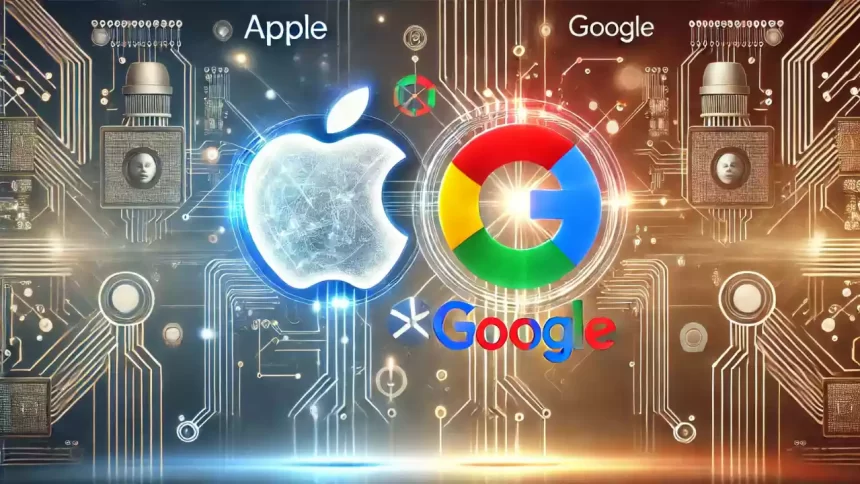In a significant development in the tech industry, Apple has been leveraging Google’s custom chips for its AI training. This partnership has caught the attention of many, given the rivalry between the two giants in the technology sector. However, the collaboration underscores the complexities and interdependencies in the tech world, particularly in the field of artificial intelligence (AI).
Apple and Google’s partnership in this area highlights how even fierce competitors can come together for mutual benefit. The use of Google’s custom chips allows Apple to enhance its AI capabilities, which is crucial for improving user experiences across its range of products. This collaboration also sheds light on the broader trend of companies increasingly relying on specialized hardware to handle the intensive computational demands of AI workloads.
In this article, we will explore the specifics of this collaboration, the reasons behind Apple’s choice, and its implications for the future of AI technology.
Understanding the Collaboration
Apple’s decision to use Google’s custom chips for AI training is intriguing, given the competitive landscape. These custom chips, designed by Google, are optimized for the high-performance demands of AI training tasks. This strategic choice suggests that Apple is focused on maximizing efficiency and performance in its AI projects. According to sources, this partnership enables Apple to utilize advanced AI models, potentially leading to significant innovations in areas such as Siri, machine learning, and other AI-driven applications.
Why Apple Chose Google’s Custom Chips
The primary reason behind Apple’s decision appears to be the advanced capabilities of Google’s custom chips. These chips are not only powerful but also highly specialized for AI workloads. By integrating these chips into their infrastructure, Apple can accelerate the training of complex AI models, which is essential for staying competitive in the fast-evolving tech industry. Furthermore, the move indicates a pragmatic approach by Apple, prioritizing the best available technology over the competitive rivalry with Google.
Implications for the Future
This collaboration between Apple and Google could have far-reaching implications for the tech industry. Firstly, it demonstrates a shift towards greater cooperation among major tech companies, especially in areas of shared interest like AI. Such partnerships could lead to more rapid advancements in AI technology, benefiting consumers with more sophisticated and intuitive products. Additionally, this trend may encourage other companies to consider similar collaborations, fostering a more interconnected and efficient technological ecosystem.
How This Benefits the Users
From a user’s perspective, the utilization of Google’s custom chips in Apple’s AI training processes is likely to result in improved products. Users can expect more responsive and accurate AI features in Apple’s devices, enhancing overall user experience. For instance, enhancements in Siri’s performance and accuracy could make daily interactions more seamless and efficient. Moreover, this collaboration may also lead to the development of new AI-powered features, further enriching Apple’s product ecosystem.
Conclusion
In summary, Apple’s reliance on Google’s custom chips for AI training is a significant development in the tech world. It highlights the evolving dynamics between major tech companies and the importance of specialized hardware in advancing AI capabilities. As this partnership progresses, it will be interesting to see how it influences the broader tech landscape and what new innovations emerge as a result. For users, this means potentially better products and services, as companies leverage the best technologies available to enhance their offerings.


